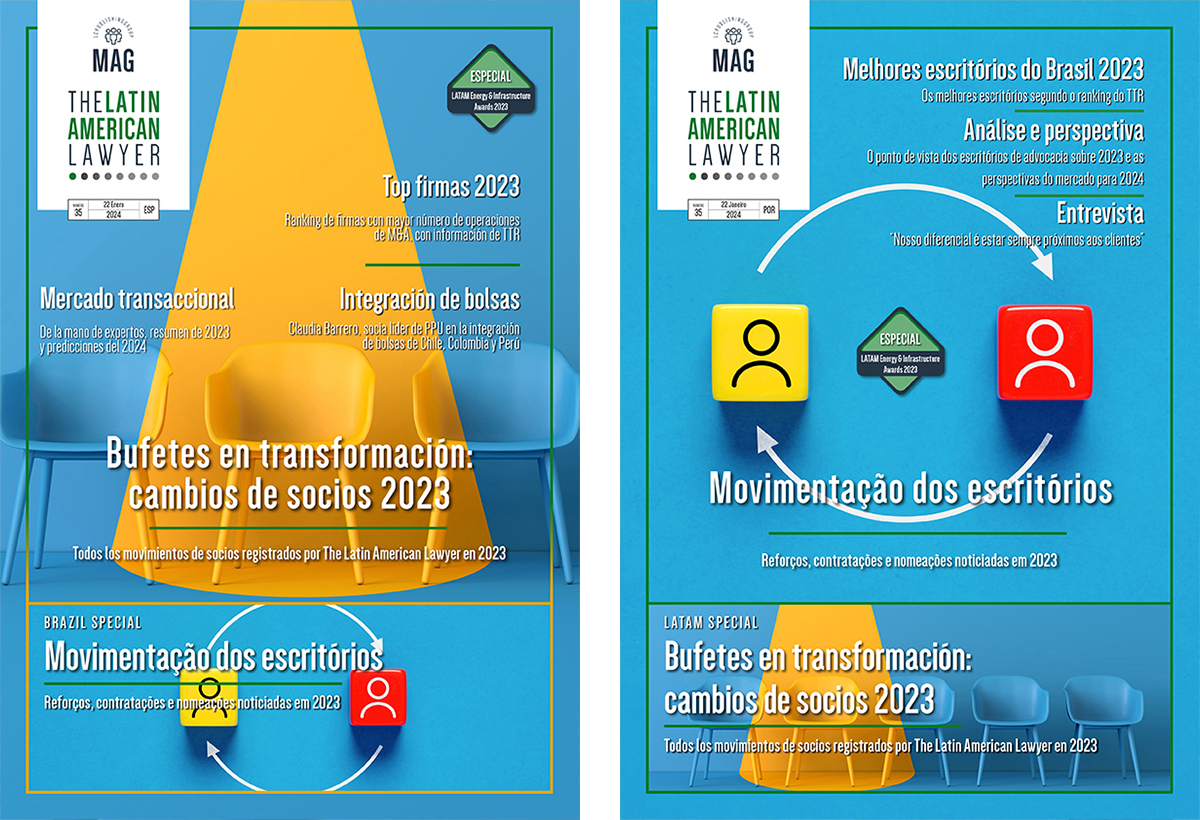More international law firms will target Central America
International clients demand innovative approaches to legal services and this will mean more international law firms forming alliances with Central American firms or opening offices in the region
Growing demand from clients for higher quality legal services across Central America will result in more international law firms targeting the region, says Alejandro Touriño, managing partner at Ecija.
Tourino adds that Central America is currently a very attractive market for hospitality and leisure companies and this was one of the reasons Ecija took the step of merging with Costa Rican-headquartered law firm Expertis in June this year, in doing so becoming the first Spanish law firm to open in the region. Expertis has nine offices in seven countries across Central America and the Caribbean.
Ecija is not the first international law firm to see the significant opportunities that exist for lawyers in Central America and the Caribbean. Steel Hector & Davies (now Squire Patton Boggs) launched an office in the Dominican Republic in 1998. More recently, global immigration boutique Fragomen, EY and employment outfit Littler Mendelson have all established operations in the region. In addition, Dentons arrived in Costa Rica, Guatemala and Panama in 2016 and in El Salvador in 2018.
Untapped potential
Touriño explains that Ecija’s decision to open in Central America was part of the firm’s strategy of aiming to win work in new markets. “As a firm, we want to go beyond the well-trodden path,” he says. “So targeting the untapped potential of Central America comes naturally.” In contrast, many global law firms only follow clients that focus on larger markets, such as Brazil and Mexico, Touriño says. He adds that expertise in technology and data privacy laws – which is one of Ecija’s specialities – is highly sought after by clients as they are areas that are becoming increasingly important in the region.
Ecija joined forces with Expertis – a law firm with offices in Costa Rica, the Dominican Republic, Panama, Guatemala, El Salvador, Honduras and Nicaragua – following many years of working in collaboration. As a result of the merger, Ecija added 81 professionals to its ranks, including 17 partners. The firm now has 18 offices in 11 countries, with a total of 60 partners and more than 300 professionals worldwide.
‘Single market’
The merger with Expertis was, according to Touriño, driven by client demand. A significant number of clients see the countries of Central America as a single market, despite their differences, and therefore it is beneficial for a law firm to have pan-regional coverage across Central America in order to capture the diverse business opportunities being offered by investors that are targeting assets in multiple jurisdictions. Touriño says the merger with Expertis is already bearing fruit and an increasing number of Ecija’s clients are expressing growing interest in the region.
Given that Expertis was founded in Costa Rica, which is one of the region’s most lucrative markets, the firm´s regional management will remain based there and will coordinate the work throughout Costa Rica, the Dominican Republic, Panama, Guatemala, El Salvador, Honduras and Nicaragua. This new team in Central America will complement Ecija’s existing Latin American operation – the Spanish firm already has an office in Santiago de Chile, which was opened in 2014, as well as a representative office in Miami which opened in 2009.
Competitive advantage
International clients face mounting challenges when doing business in Latin America. Consequently, it is critical that clients are prepared for local regulations, particularly those related to labour and tax. In addition, data privacy laws are a growing concern for many clients and law firms with the relevant expertise have a competitive advantage in the market, Touriño says.
Local law firms in Central America are able to call on large pools of talented lawyers and they are regularly servicing international clients, particularly US clients, in English. Meanwhile, international law firms bring the added value of innovation in terms of legal management and project management technology, as well as expertise in new areas of practice, in addition to offering ‘global standards’ of service, which is critical when meeting the demands of international clients. Touriño says this environment will, in turn, push more law firms to expand their operations to Central America, either by seeking local law firms as strategic partners or opening offices in the region.














